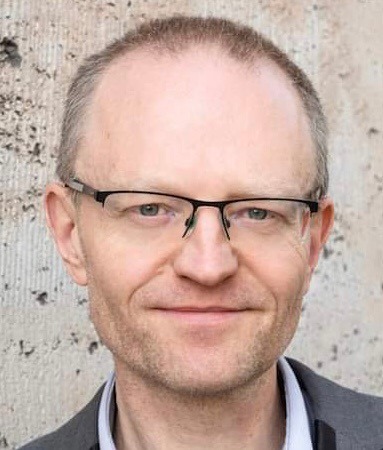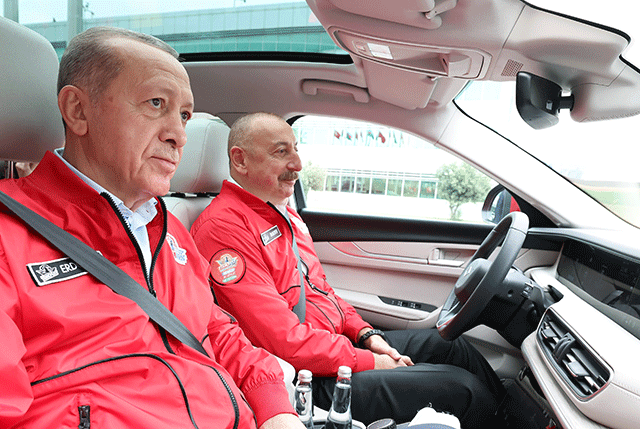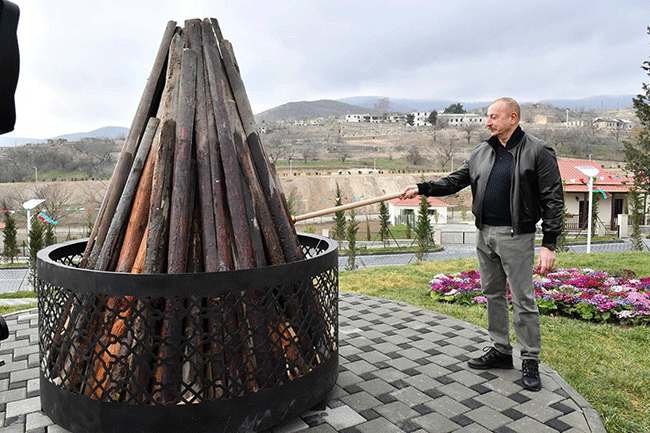Stefan Meister, Head of the Center for Order and Governance in Eastern Europe, Russia and Central Asia, German Council on Foreign Relations
– How do the Armenian-Azerbaijani post-war processes affect Germany’s foreign policy interests? Are these processes viewed in Germany separately from the Russian-Ukrainian war?
The post-2020 war situation between Armenia and Azerbaijan on Karabakh does not have enough attention in Germany. The South Caucasus is not seen as important for European security as it is. In the German political elite circles there is a lack of understanding of the importance of this ongoing conflict and of its impact on the entire region. It is very much focused on what is happening in Ukraine and in supporting Ukraine, which is very, very important.
Read also
But in Germany there should be also a better understanding that there is a huge impact of the Russian war in Ukraine on the wider post-Soviet region, and that also the security and the geopolitical balance in this region have changed, impacted by the 2020 war and the war in Ukraine. This impacts the EU and the EU neighborhood policy and security. This is not sufficiently discussed in Germany, other member states and the EU itself.
It’s a key war of the 21st century, which has been studied also by military analysts in terms of use of intelligence, use of modern weapons (drones and other). And I think that it’s a war which impacts how the way wars in the next decades will be organized. And that has an effect also for Germany and the European Union, the way the neighborhood is changing. What we now see is that with weakened Russia the security balance in the South Caucasus has changed. The authoritarian stability that Russia provided in the past now is neither willing nor able to provide any more in the South Caucasus.
And the EU, including big players like Germany and France, have to deal with security in its neighborhood in a much more comprehensive way and become an actor also in the regional conflict zones, in the security situation in the South Caucasus and the wider Black Sea region. And what we will see in the South Caucasus is a reshuffling of the regional order, where other players like Turkey, Iran, Saudi Arabia, and China will more and more shape the regional security order. And if the EU and member states do not become more active in the South Caucasus region, the conflict zones and connectivity, regarding the security situation, the EU will lose its impact on security in its wider neighborhood. This, in turn, will have an impact on stability, migration, governance models (how much democratic and authoritarian regimes will be successful in this region) and the image of the European Union and its neighborhood.
– Can we say that today new algorithms of relations in the South Caucasus region are being shaped? How are they manifested, and what is the role of the EU in this context?
With these two wars, the 2020 and the 2022 wars between Armenia and Azerbaijan, and then the Russian war against Ukraine, we see a reshuffling of the whole post-Soviet region. There is no security order in the South Caucasus. And at the moment we can see Russia as the dominating power in the region, weakened but still able to act and be a key player, and the increase of power of other players like Turkey and Iran. And I think that in the future China also will play a bigger role. So what is happening now is a reshuffling of the regional order, where Azerbaijan at the moment is playing a dominant role because it has military superiority with the support of Turkey. And we have other external players like Turkey, Israel, Iran, China, and Saudi Arabia, but also the EU and the US playing a new role in this situation. And they have to redefine their roles and interests in the region. We see that the EU is more active in the South Caucasus. We have this facilitation platform with Charles Michelle, we have the EU monitoring mission on the border of Armenia with Azerbaijan and we have more diplomatic activity of the EU itself (not the OSCE Minsk Group anymore, but it is now the EU itself) coordinating its activities also with the US. The US is also becoming more active again in the region. The EU now is trying to stabilize the situation, which has become very dynamic. Then there is a growing interest in the energy resources decoupling from Russia, interest in the Caspian resources, in the trade routes, in the connectivity with the South Caucasus (the whole thing with the Middle Corridor).

Stefan Meister
We are in a transition period to a new regional security order for the South Caucasus, with an increasing role of external actors in regional security, and the inability of Armenia and Azerbaijan to find a peace agreement acceptable for both sides. This means that we will have ongoing conflicts which will be used by other external players for their own interests to deal with the region and with the countries.
– What is Germany’s agenda specifically in matters of the post-war Armenian-Azerbaijani confrontation? Is this agenda different from those of other EU member states? Are there more threats or opportunities for Germany and the EU?
To be honest, at the moment, I am not sure what the German agenda is on Armenia and Azerbaijan. I don’t see that there is a kind of leadership like we had in the past with the Stability Pact for the South Caucasus, a concept we had 15 years ago. But there is not much engagement from the German side now. I think it’s always about stability, preventing migration, strengthening multilateral institutions. There were meetings with the leaders of Armenia and Azerbaijan in Berlin just a couple of weeks ago. So there is a kind of diplomatic engagement from the German side, and there is the support of the EU and the Charles Michelle platform. But there is no specific German agenda on security, engagement or conflict strategy towards the region. The absence of German engagement weakens also the EU’s approach in the region, and it is a mistake. It needs more engagement from the EU and from the big member states to play a bigger role in stabilizing the situation and internationalizing the conflict solution specifically on Nagorno Karabakh.
The changing security situation is also an opportunity if there is an agreement, if there is an acceptance also of the status quo, if there is a border opening between Armenia and Turkey, and if there are new opportunities to link Armenia to the transit corridors between Asia and Europe to integrate also in this middle corridor and also engaging with Azerbaijan on investment in infrastructure, in renewable energy, if there is an opening of the current situation we have, if we overcome that. But if one side dominates the whole peace process and dictates the rules, it will not create a sustainable peace. But I think it’s an opening, it’s an opportunity also with a weakened Russia. How Russia wanted to keep the status quo as it was interested in keeping the conflict, to have leverage also on both countries. I think there is an opportunity now to overcome this Russian dominance and paradigm in the region and to more internationalize the conflict engaging with both countries of the conflict and maybe even help to rebuild in an EU neighborhood context. Maybe even it is possible that Armenia leaves the Russian sphere of influence having an opportunity also to integrate on one point with the European Union. So I see here a lot of opportunities, but it’s blocked at the moment with this very dangerous military and security situation and the lack of will to make compromises and to create a sustainable peace agreement.
– Do you see any prospects for establishing a regime of peace and stability between Armenia and Azerbaijan in light of the strained Russian-Western relations due to the Russian-Ukrainian war?
The problem is that we have three levels: the local level (bilateral level) and the regional level, where neighbors are using this conflict. And then somehow there is the global level, where you have the Russia-West or maybe even the West-Russia-China confrontation. And all this plays into the situation of this conflict. And I think it should start with getting a sustainable peace agreement between Armenia and Azerbaijan. But with this maximalist approach of Azerbaijan and the culture of victory and revanche I don’t think that peace will come. But if this problem is solved, if there is an agreement (maybe with the support and facilitation or even negotiation of the EU and the US) it would give external players less leeway on both countries. So it would reduce also the impact of external actors on both countries because there is less room to manipulate the situation between both countries. But as long as this has not happened, and all these three levels are interacting with each other (Russia and the West are in such a big conflict that there is no compromise and no cooperative approach, in the post-Soviet region there is always competition between both sides) I really don’t see how to break this.
We could argue, if the leadership in Turkey is changing with the election in May, if there is maybe a more progressive government in terms of democratization, integration with Europe and solving also this issue with Armenia, there would be pressure on Armenia and Azerbaijan to overcome this situation. I think there might be a window of opportunity, but I’m rather skeptical about Turkey challenging their relations with Azerbaijan, even with a new government and without President Erdogan who might not win this election again. But the problem from the Western side is that the engagement is not comprehensive and serious enough. It needs more than facilitation, it needs negotiation. You need to build up leverage also on both countries, Armenia and Azerbaijan. And we should also try to integrate both countries more actively within the EU because that would also create a transformative power for the whole situation. But I think there are a lot of question marks with the things I just mentioned. I am rather skeptical that this will happen now in this very difficult security and geopolitical situation in which we are.
– In your opinion, what countries, organizations can achieve that Azerbaijan stops the blockade of Nagorno-Karabakh residents, which has been taking place for over 4 months? According to you, what are the main expectations of Azerbaijan from the blockade, and what has Azerbaijan achieved today?
The main aim for Azerbaijan is to get control over Karabakh and first of all to get control over the entry of Nagorno Karabakh, to control the whole territory and access to the region. And then on one end, to control the region and integrate it into Azerbaijan, and get this into a peace agreement signed with Armenia. And if people do not accept the rules of the Azerbaijani government, even push out the people from the region. But they also feel that they are under pressure. If Erdogan is not reelected, it might be more difficult to get Turkish support for this policy. And Azerbaijan wants to have kind of pressure also to get it fixed now because there are also questions inside the country: Where is the big success? Where is Karabakh? How much of it do we control now? So President Aliyev is vulnerable in this context. The problem is that Azerbaijan feels strong, they feel super militarily. And I don’t see at the moment any actor who has leverage or builds up leverage in Azerbaijan to negotiate a peace agreement acceptable for both sides. Turkey is a key country here, but it is very much linked with Azerbaijan in many ways.
So I don’t see a big shift in Turkish policy here. I think OSCE is just dysfunctional, it won’t play a role in the future as an institution. And the UN is also not able to play a bigger role here. So I really see within the main actors the EU and the US that can play a key role here. Because we had the regionalization of the conflict. And now the push is more to internationalize the conflict and to find a neutral platform. The EU has to build up leverage on Azerbaijan and Turkey. Maybe it is possible even to provide peacekeeping also at one point because that Russian so-called peacekeepers are playing the role they should play. And this monitoring mission is for me just a starting point for bringing more transparency in this conflict and then really working with both governments also on a border agreement between Armenia and Azerbaijan, on the transit routes and the so-called Zangezour corridor. Karabakh is the key. Russia is weakened in a way and is dealing with Turkey and Azerbaijan. I don’t see any other actors than the EU and the US who can solve this.
– How efficient can the policy of equidistance from the parties to the Armenian-Azerbaijani and Russian-Ukrainian conflicts be?
The Russian war against Ukraine is changing Russia’s interests and its relationship with Europe, the EU, the US and the West. And that has an impact on all relations. So I think there is no equidistance in this sense. The problem is that there are so many interlinks with each other, it impacts all the conflict zones in the common neighborhood, in the post-Soviet region, and it changes also Russia’s interest and role as a security player. On one hand, it leads to more EU engagement in security in this region, but in a way always very much Russia-focused. And I think we have no platforms anymore where we speak with Russia and where we could work cooperatively to solve conflicts. It is just not possible at the moment. And Russia is like a disruptive power. And it’s using also conflicts to be disruptive. That is why I think everything is interlinked. That is the problem. You can look at how Iran and Israel, are now engaging in this conflict. Israel then engages with the US and Turkey. (Turkey-Iran, Turkey-Israel).
In Europe we still conduct the South Caucasus policy, conflict policy, Black Sea policy, Ukraine and Russia policy but we don’t interlink them with each other. There’s a lack of strategic understanding that this all is interconnected and you have to be more active in other fields to impact the other conflicts or the other players. Turkey is a key country. The EU needs to engage more with Turkey, it needs to rethink its Turkey policy and maybe even try to again integrate Turkey stronger with Europe because that will have an impact also on the Middle East, the South Caucasus and the Black Sea region. And this is interlinked also with Karabakh and Armenia-Azerbaijan conflict. That is the problem, the interdependence and interlink of all these actors, conflicts and trends we have at different policies. The policy is not responding to these interlinks sufficiently, and that makes it difficult to be a decisive actor in this region.
Series of interviews “Agendas and New Algorithms of Policies in the South Caucasus – 2023” is being organized within the framework of the Region Research Center’s project “New Agendas for Peace and Stability in the South Caucasus after the Karabakh 2020 War”. The project is being implemented with the support of the Black See Trust for Regional Cooperation. The opinions expressed in this material are those of the authors and do not necessarily represent the opinions and positions of the Black See Trust for Regional Cooperation or its partners.























































